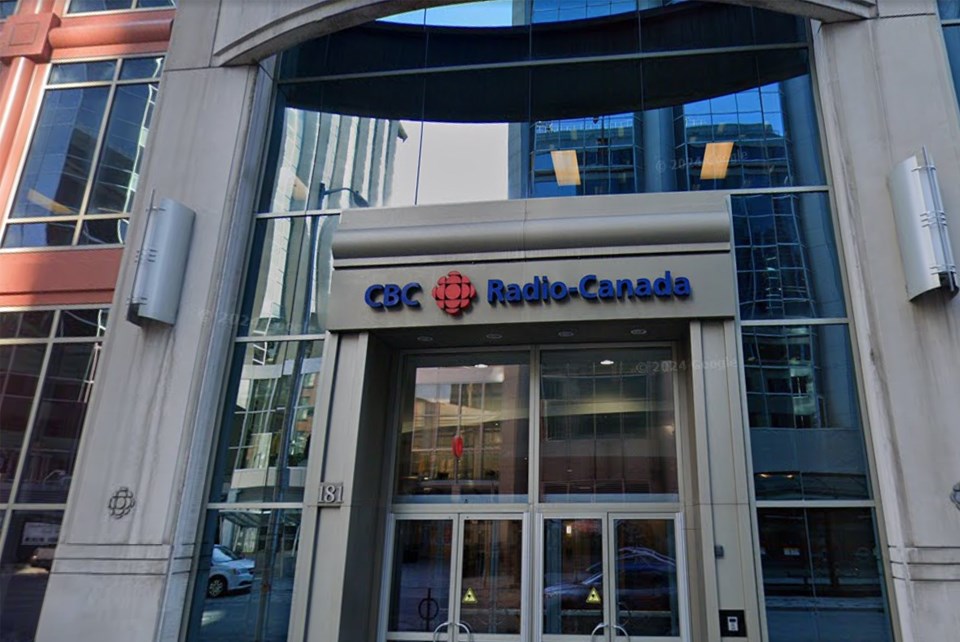Canada’s national broadcaster is one of the few remaining news organizations with the reach and capacity to cover what truly matters. CBC/Radio-Canada is an essential institution—a counterweight to the U.S. media machine and a meaningful alternative to the mindless pap on commercial radio. It helps preserve our national identity.
Funded by taxpayers, the CBC is mandated under the Broadcasting Act to serve all Canadians, regardless of region, background or political belief. That’s why it’s so important to hold the CBC to account, and to understand why some Canadians feel so mistreated by the broadcaster that they wish it would disappear.
This issue was thrust into the spotlight last week with the dramatic resignation of Travis Dhanraj. Once a rising star and the national face of Marketplace and Canada Tonight, Dhanraj had become one of the relatively few visible minority journalists in a high-profile national on-air role at CBC—a fact that added weight to his allegations.
He vanished from the airwaves, only to re-emerge with a hand grenade on his way out.
His exit has been seized upon by the Defund-the-CBC crowd as fresh proof that conservatives are getting a raw deal from the public broadcaster.
Dhanraj didn’t go quietly. In an email to colleagues, he said he was forced to resign after raising concerns about a lack of editorial independence and diversity of opinion.
“This was not a voluntary decision,” he wrote. “When I pushed for honest conversations about systemic issues and editorial imbalance, I was shut out. Sidelined. Silenced. And ultimately, erased.”
He accused the CBC of “tokenism masquerading as diversity, problematic political coverage protocols and the erosion of editorial independence.” The workplace culture, he said, was marked by “retaliation, exclusion and psychological harm.”
Days later, he posted on X: “When the time is right, I’ll pull the curtain back. I’ll share everything… I’ll tell you what is really happening inside the walls of your CBC.”
One can only imagine the fits this caused behind closed doors at the Toronto Broadcast Centre—ground zero for the Laurentian elite.
If Dhanraj’s message reads like a legal claim, that may be intentional. His lawyer says he plans to file a complaint with the Canadian Human Rights Commission and possibly sue.
Kathryn Marshall, who represents Dhanraj, also alleged that CBC executives assumed he held a “liberal world view” because of his skin colour, and were disappointed when he didn’t conform to their expectations.
These allegations remain untested, and without a trial, the facts may never come to light. If there’s an out-of-court settlement, the full story might never be heard.
The CBC, meanwhile, “categorically rejects” the allegations. Spokesperson Kerry Kelly said the corporation is limited in what it can say due to “privacy and confidentiality considerations.”
Critics of the CBC have shown no such restraint.
“Dhanraj’s grievance speaks to something existential about the CBC’s news organization—something conservatives have always believed. It’s not ‘for Canadians’; it’s for certain kinds of Canadians,” wrote Chris Selley in the National Post, concluding that CBC News “needs to be torn down to the studs and rebuilt.”
Selley has a point about the clubbish nature of the CBC. Though I consider myself progressive, I’ve grown uneasy with the dismissive tone CBC often uses when covering conservative politicians. It’s not in keeping with the Canadian way, and risks fuelling the same toxic us-versus-them divide that has poisoned U.S. media. Fox versus CNN. Truth Social versus MSNBC.
CBC also seems increasingly reliant on quoting its own journalists as subject matter experts rather than seeking outside voices. Whatever happened to its mandate to “provide a wide range of programming that informs, enlightens, and entertains”?
This isn’t an attack on the many ethical, hard-working journalists at the CBC. It’s a challenge to those at the top who shape the culture and call the shots.
Prime Minister Mark Carney has styled himself as a bold reformer ready to rebuild Canada. His promises focus on the economy, but the same commitment is needed in our cultural and information institutions. The federal government’s $150-million funding boost for the CBC isn’t necessarily a bad thing, but without serious reform, it won’t fix the deeper malaise.
There is something fundamentally wrong with CBC’s news division — from editorial decisions to the tone of its reporting. If Dhanraj’s claims hold even a shred of truth, the corporation’s future depends on meaningful change.
Carney — and the rest of us — must demand it.
Doug Firby is an award-winning editorial writer with over four decades of experience working for newspapers, magazines and online publications in Ontario and western Canada. Previously, he served as Editorial Page Editor at the Calgary Herald.
The commentaries offered on SaskToday.ca are intended to provide thought-provoking material for our readers. The opinions expressed are those of the authors. Contributors' articles or letters do not necessarily reflect the opinion of any SaskToday.ca staff.




